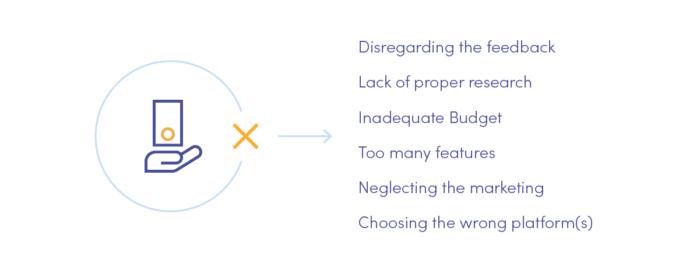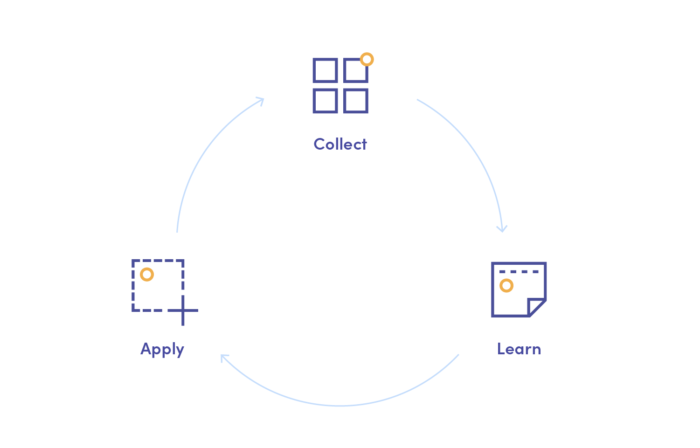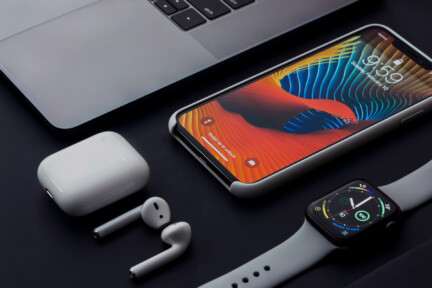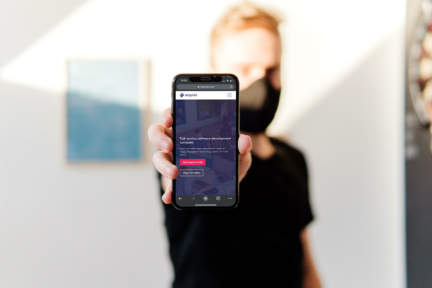Developing a mobile app for your business is a very exciting, but nevertheless complex journey. There are lots of different factors to consider at different stages, various obstacles to overcome and it’s all very time-consuming. As such, mistakes are bound to happen sometimes, and it’s helpful to know which red flags to watch out for.
6 mobile app development mistakes to avoid

In this article, we’re going to talk about the most common app development mistakes so that you can avoid them in your projects and make sure the end result is exactly what you dreamed of.
1. Lack of proper research
Neglecting research can result in dire consequences for the entire project. Without proper research, you might find yourself with a digital product that very few people want to use, contrary to what you initially might have thought.
The key here is to verify those assumptions and polish your idea accordingly during the initial stages of product development. Start with analysing what you actually want to create:
- What’s the specific problem that your product would solve?
- By which means would it be able to do that? Is it innovative in any way?
- Does it fit your business model?
Those are some of the most basic questions on your journey to idea validation. During the research phase, it is also crucial that you put extra focus on defining your potential user base: the demographics, their goals, motivations, what are they likely to be interested in and, most importantly, what are their needs, and whether they align with your mobile app idea.

When doing research, don’t forget about your competitors: find out about what they offer and their target audience groups. Researching the competition will help you to identify your unique value proposition and learn more about what users expect.
2. Disregarding the feedback
Learning that the product you’ve worked so hard to release into the world might still need some changes and upgrades is a tough pill to swallow. However, you should never disregard any user feedback, especially when it’s negative.
Of course, you shouldn’t immediately start implementing changes based on one bad comment. But if multiple users come to you with the same concern, then mobile app developers should definitely look into making necessary improvements.

Don’t ever ignore what people have to say about your app – it’s one of the most valuable pieces of information you’ll get about what you might’ve missed and what still needs to be done. The earlier you start collecting feedback (for example, by checking app ratings and reviews regularly), the better for the entire project.
3. Inadequate budget
Coming up with a budget for your mobile application development is dependent on a few factors that many companies fail to think about when planning out their product.
First off, keep in mind that the cost will depend largely on the scope of your application: if you’re planning to build a complex product, the development time will become longer, and thus more costly. It’s also important to remember that creating successful mobile apps is not only about the development stage: things such as design, user interface and maintenance are also a vital part of the process and should be included in your budget.
As a general rule, the more materials, briefs and general research you’re able to provide, the more specific the estimation. However, keep in mind that any additional changes, especially when made at the very end of the process, have a high probability of making the development process longer, and again – more expensive.
Speaking of which…
4. Too many features
Building a complex application is definitely going to take a toll on your budget, but that’s not all there is to it. The more you want to add, the longer the development process is going to become, and the more you’ll have to wait for a finished product.
Also, stuffing your app with features means you take higher risks: you might take it for granted that your users are going to love a given set of functionalities, but then it turns out that they aren’t even using nor actually needing them.
This is why when it comes to app development, the Minimum Viable Product approach is considered to be the safest, most beneficial one in the long term. The idea is to build a finished product ready to be launched on the market that has just enough features for early adopters to use. This way, you can gain valuable feedback from users and begin to enhance your product with features that you know your customers are actually going to use.
5. Neglecting the marketing
Developing your own application might prove to be a very tiresome process, and while release day is a success in and of itself, what comes next is no less important. It’s a fact that the mobile app market is constantly growing, so in order to stand out from the crowd, you’re going to need a very solid marketing plan. More than that – it should be a part of your strategy from the early stages.
Promoting the app shouldn’t be an afterthought, as the worst mistake you could possibly make is leaving the marketing for the very last moments, failing to gain enough interest from users.
6. Choosing the wrong platform(s)
The first instinct is of course to develop your app separately for both iOS and Android, as that would get you the most reach. While that may be true, simultaneously developing a native app for both platforms will tremendously increase the overall cost.
One approach here is to focus on a single platform first and choose the OS that your users are more likely to have. There are many different factors to take into account here: Android holds most of the worldwide market share, but on the other hand, iOS is the more popular option in countries such as the United States or Japan. iOS users are also much more likely to spend money in-app.
Another option you might want to consider is cross-platform app development, i.e creating one app for both platforms using a single codebase. You’d be able to save some valuable time and money since you’re no longer creating separate apps for iOS and Android. However, keep in mind that if having platform-specific features is one of your priorities, then choosing native app development is the better choice here.
Summary
Building a successful mobile app can prove to be a real game-changer for a company’s growth. Now that you know which mistakes to watch out for, you can make certain that the entire process goes as smoothly as possible. As long as you put your focus on the right areas, and have a trustworthy team at your disposal, you’re all set on a course to a successful product.
Looking for a custom app development agency that will take care of your product from start to finish? Don’t hesitate to contact us!








